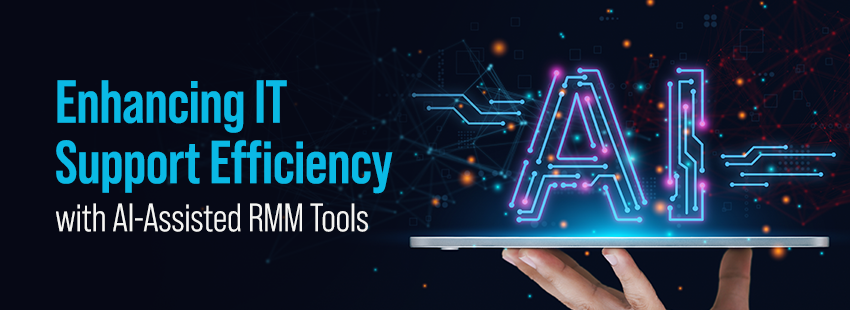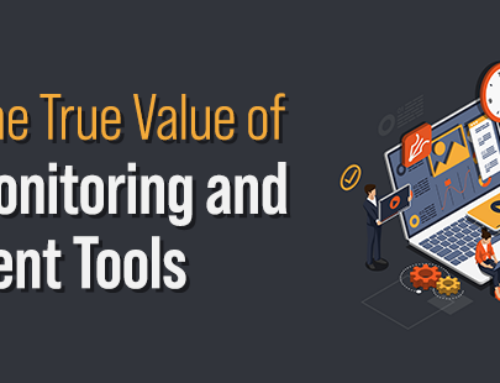The integration of Artificial Intelligence (AI) into Remote Monitoring and Management (RMM) tools has emerged as a game-changer. This dynamic fusion has not only streamlined support processes but has also revolutionized the way businesses manage and troubleshoot their IT infrastructure. In this blog post, we will delve into the transformative capabilities of AI-assisted RMM tools and explore how they make support easier, more efficient, and, ultimately, more effective.
1. Proactive Issue Detection
One of the key advantages of AI-assisted RMM tools lies in their ability to detect and address potential issues before they escalate proactively. Traditional RMM tools often rely on predefined rules and thresholds, reacting only after a problem has already occurred. AI, on the other hand, employs machine learning algorithms to analyze historical data and identify patterns indicative of potential issues. This proactive approach not only minimizes downtime but also allows IT teams to address concerns before end-users are even aware of them.
2. Predictive Maintenance
AI-assisted RMM tools take maintenance to the next level through predictive analytics. By analyzing data trends and historical performance, these tools can predict when hardware components are likely to fail or when software updates are necessary. This predictive maintenance approach ensures that IT teams can schedule necessary interventions during non-critical periods, reducing the impact on productivity and preventing unexpected system failures.
3. Intelligent Automation
Automation is a cornerstone of RMM tools, and AI brings a new level of intelligence to this process. Routine and repetitive tasks, such as onboarding, patch management, software updates, and security scans, can be automated with greater precision and efficiency. This not only frees up valuable human resources but also ensures that tasks are executed consistently and in accordance with best practices.
4. Enhanced Security
Security is a top priority for any IT support team, and AI-assisted RMM tools play a crucial role in fortifying defenses. These tools can continuously analyze network traffic, detect anomalies, and identify potential security threats in real-time. By leveraging AI-driven threat intelligence, IT teams can stay one step ahead of cyber threats and proactively implement security measures to protect sensitive data and maintain the integrity of the IT infrastructure.
5. Intelligent Ticketing and Resolution
AI brings a new level of intelligence to the ticketing system, making the support process more efficient. AI-assisted RMM tools can categorize and prioritize tickets based on urgency and impact. Furthermore, they can provide automated responses to common queries and even suggest resolution steps based on historical data and known solutions. This not only accelerates the support process but also empowers IT teams to focus on more complex issues that require human expertise.
6. Improved User Experience
The ultimate goal of any IT support system is to enhance the user experience, and AI-assisted RMM tools contribute significantly to this objective. By minimizing downtime, automating routine tasks, and resolving issues more quickly, these tools ensure that end-users experience fewer disruptions and enjoy a more seamless and productive work environment.
In conclusion, the integration of AI into RMM tools represents a paradigm shift in the world of IT support. The combination of proactive issue detection, predictive maintenance, intelligent automation, enhanced security, and improved user experience makes AI-assisted RMM tools invaluable assets for modern businesses. As technology continues to advance, the collaboration between AI and RMM will likely evolve further, ushering in a new era of IT support that is not only efficient but also adaptive to the ever-changing demands of the digital landscape.




